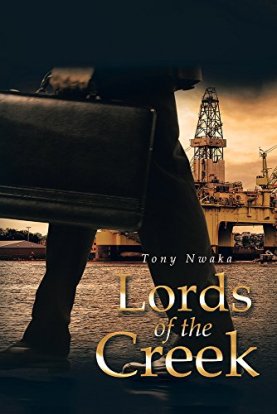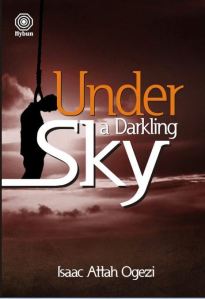My infrequent encounter with science fiction has been limited to the mediums of film and cinema. Science fiction is an entirely unexplored area of my literary awareness. I subscribe to literary naturalism; I do not have the pristine gift of disproportionate imaginings. The inclination to read Spider the Artist came from two things. One, the story is a short one, just about five thousand words long. Two, it is written by a Nigerian, never mind, in the Diaspora. I had never read (of course not), or heard much of a Nigerian science fiction, or science fiction written by a Nigerian – two separate things, by the way. And apart from the ill-received cinema feature District 9 (which is neither Nigerian in the any sense of the word nor was it written by a Nigerian), I could hardly think of science fiction and Nigeria together. You can imagine my fascination when I discovered that Spider the Artist is both a legitimately Nigerian story and written by a Nigerian.
In spite of my literary inclinations I firmly believe that literature ought to be versatile and dynamic. Spider the Artist is nothing if not a definite shift from what you would expect to find on Nigerian book stands.
Science fiction is new in the scene of Nigerian literature. With good reasons, too. It is not because Nigerians lack the creative imagination required to spin out-of-worldly tales. It has to do with the fact that Nigeria is not a scientific or technological nation. This, then, would tend to stymie scientific imaginations since writers invariably have to depend a lot on their environment for suggestions for themes, plots and storyform.
By definition, science fiction describes a genre of fiction habitually set in some imaginary time or place, or which deals with imagined civilisations, travel in space, marvellous beings, new inventions and technologies, or simply put, events that could not really happen in the real world. It is however agreed that a work of science fiction must not violate what is known to science, or yet, what is common knowledge. In other words, it may freely speculate on the unknown, but not in the sphere of the known. However, to my mind, whenever a work begins to speculate on the unknown, it has ceased to straddle science and fiction. It has, speaking strictly, made the cross over to fantasy. For, science fiction is not a term describing a miscellaneous-type genre for spinning absurd or wild spins. The rule of thumb has always been to present the stories in a rational manner.
The author of science fiction fancies himself a bit more than an entertainer. He is a seer; he predicts the future. Whether such predictions have proven to be less than accurate or not, the interesting fact remains that the author tries to look into the future to ascertain what kind of world future generations will be plunged into as a result of the way we are living today. He is a predictive historian.
In earlier times, futuristic narratives held more hope for the future. They usually explored romantic notions of technological advancement – a world of human bliss made possible by robots replacing manual labour. But in more recent times there has been a tendency to mistrust the role of robots in the future, with technology posing more of a threat to human societies.
Spider the Artist doesn’t quite reach the grim proportions of artificial intelligence taking over the human society. It is at the point where powerful forces (Nigerian Government) employ technology to suppress the weaker elements, the masses. However, it stops just short of reaching this pinnacle of chaos as the robots in this story are proving difficult to contain by Nigerian law enforcement:
“Wahala! Trouble!” the soldier frantically told television reporters. His face was greasy with sweat and the sides of his eyes were twitching. “Evil, evil things! I’ve believed this from start! Look at me with grenade! Ye ye! I could do nothing!”
The story is set in the Niger Delta region where oil has become a curse rather than a blessing. Where the people suffer helplessly the consequences of oil exploration: environmental degradation, pollution of water bodies, and in the words of the writer:
The fish, shrimps and crayfish in the creeks were dying. Drinking the water shriveled women’s wombs and eventually made men urinate blood. . . . In some places, it was always daytime because of the noisy gas flares. My village was shit.
The ‘pipeline people’ resort to oil pipeline vandalism and militancy but the Nigerian Government, supported by the foreign companies responds by creating zombies to keep the people in check. The zombies, it would appear, are sound sensitive, responding quite rapidly to even the slightest tap of the pipelines running through the backyards of the rural Niger Delta people to unleash terror of disproportionate dimensions, ironically described by the Government officials as “little harm as possible.”
As a futuristic narrative, Spider the Artist, is a very engaging story with an even more compelling opening. The preluding lyric from Fela Kuti’s song Zombie is also an additional perk.
The narrative voice is unmistakably that of “a simple village woman living in the Delta region.” To its merit the story captures the frustration, restlessness and apprehension of the people of this region in the face of such deprivations and abuses. It incorporates aspects of living belonging in the future very effortlessly. For one thing, I can hardly imagine a cell phone ringing in my childhood, or my great grandmother lying on a pipeline.
As speculative fiction, it is a rather depressing forecast. It seems to suggest that the region will still be in the sorry state it is today years from now, that such technological ingenuity and such abject ignorance can exist side by side. It makes the important argument that the future of the Niger Delta people is potentially bleak, a pessimism that is not unfounded, and shows the crisis management faculties of the Government in very shabby light. It is therefore a wake-up call for the Nigerian Government to reconsider who and what is important in the oil wealth equation.
We must not overlook the equally important underlying message that the Niger Delta people could also be contributing to the problem. Through the symbolism of the central character’s grandmother’s bemused wonderment at the steel pipelines, exacting ironical laughter from her. In the face of such a sorry state of affairs, it is would prove to be no laughing matter. If these people refuse to see the humour of the situation, they may not have to face shiny steel zombies who are shy of embraces, I might add.
But like a preacher I once heard said, sometimes a problem might exact so much wonder that we just sit and admire it. Perhaps the Niger Delta one is just this kind.
I like that the story has managed to retain its Nigerianess in its language – the narrator often interpolates in pidgin – and mood, as well as in the handling of the issues at stake. I think, too, that it fits well enough into its intended genre, having sufficiently developed and resolved a real crisis.
I did dictate a few inconsistencies in the storytelling, though. For instance where the meals of a “poor (although), not starving” family includes a “dinner of pepper soup heavy with goat meat, chicken and large shrimps” and how it contradicts the general poverty painted by the author in the story. Matter of fact, such a meal in nearly any Nigerian setting depicts a rather cosy station of life. Also, I kept wondering how any one of the pipeline vandals could outrun the zombies to escape to tell the story, the same zombies described as resembling “a herd of super fast steer” in their motion. I realize that that may have been an excuse permitting the author to describe the zombies from a first-person POV but it might have been more realistic to write this knowing down to propaganda spread by the government itself. Again, we are not told where the zombies come from, even though common knowledge tells us that things occupy space. It is a little too much to leave such important information to our imaginations, especially seeing that the information potentially affects the future of the plot as a whole.
Spider the Artist is a great leap with potentials to change the face of Nigerian literature. More so, as a short story it seems suited for our particular audience who may find it easier to ruminate upon the unusual ideas in small palatable morsels.
I only wonder how this story might have fared if it had been written in a language other than English. Might the storytelling have crossed that fiction-fantasy line and wandered into climes reminiscent of grandmothers’ tales under the moonlight, thick with fantastic humanoid creatures at every turn and rich in morals resounding across generations? I wonder.
One thing is sure, speculative fiction as this writer has written allows one to comment upon the really important things – humanity and its future. Consequently, Nnedi Okorafor has distinguished herself as an important writer and Spider the Artist, an important piece of writing.
Book lovers want to know!
 Title: I am Kagara: I Weave the Sands of the Sahara
Title: I am Kagara: I Weave the Sands of the Sahara
 Title: Lords of the Creek
Title: Lords of the Creek
